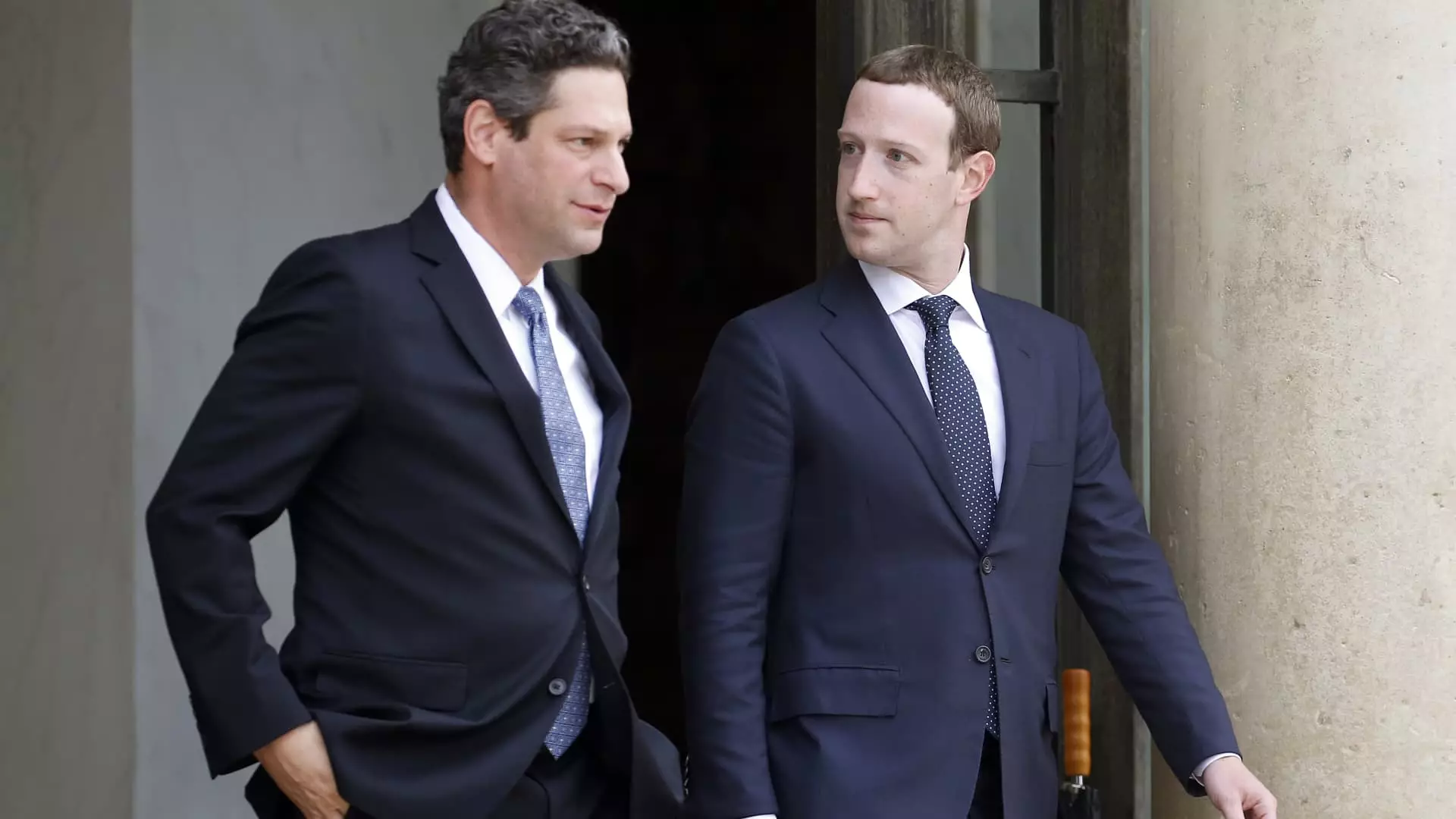In a notable shift within the corporate hierarchy, Meta, the parent company of Facebook, has announced the transition of leadership in its global affairs division. Nick Clegg, who has served as the President of Global Affairs since 2018 and previously held the position of Britain’s Deputy Prime Minister, is stepping down. Clegg will be succeeded by Joel Kaplan, Meta’s current policy vice president, igniting discussions on the implications of this leadership swapping as the company braces for a new governmental landscape.
With President-elect Donald Trump’s inauguration looming, this change is emblematic of how major tech corporations are recalibrating their strategies in anticipation of a potentially altered political framework. Kaplan’s background as a former Republican party staffer and his connections to the prior Bush administration suggest an adjustment in Meta’s political outreach and lobbying efforts. This move marks a departure from Clegg’s more established ties within the UK political landscape to a more American-centric, conservative approach that could align well with Trump’s agenda.
Clegg mentioned in a memo, that there’s never a perfect time to transition, yet the beginning of a new year often symbolizes fresh beginnings. While Clegg’s tenure was marked by trials including the Cambridge Analytica scandal, and intense scrutiny surrounding the platform’s impact on democracy and the spread of misinformation, he managed to create a footing for the company amidst these challenges. His departure might raise questions about continuity and how Kaplan will navigate the existing complexities of social media regulation and public sentiment.
Though Clegg leaves large shoes to fill, Kaplan’s experience, primarily focused on policy work, should not be discounted. Kaplan has cultivated relationships at the highest levels of government and has been a vital part of strategic discussions, positioning him well for this new role. Nevertheless, he faces daunting challenges. Meta continues to be under criticism for its role in the misinformation epidemic and the impact of its algorithms on societal discourse.
Moreover, Kaplan’s previous appearances at significant political events, including attending Supreme Court Justice Brett Kavanaugh’s confirmation hearing, have been controversial. Such ties to a partisan figure may lead to skepticism from critics who fear that Meta, under Kaplan’s influence, could lean toward a particular political agenda. This perception poses a significant hurdle as Kaplan attempts to restore trust with users, stakeholders, and policymakers.
As Clegg steps down, his legacy is multifaceted. He played a pivotal role in various high-stakes discussions and navigated the stormy waters of legislative scrutiny during his time at Meta. His insights in shaping responses to emerging challenges, such as the regulation of artificial intelligence and online content moderation, reflect a time of increasing accountability for tech giants. Clegg emphasizes that throughout his tenure, he worked to reshape the narrative surrounding Big Tech’s role in society, but the task remains far from complete.
In a bittersweet farewell, Clegg thanked Meta’s CEO Mark Zuckerberg and expressed gratitude for the collaborative environment in which he operated. With new leadership dynamics and ongoing public scrutiny, Kaplan will be tasked with elevating the discourse around Meta’s practices and fostering a positive relationship with a more demanding audience.
As Kaplan prepares to take the helm, stakeholders are keenly watching how his policies will manifest in practice. Whether he can successfully build on the foundation that Clegg established, while steering the company towards a more ethically mindful future remains to be seen. The tech industry continues to evolve, and as the public grows more astute regarding the implications of technological advancements, Kaplan’s immediate challenge will be to ensure Meta is not just a bystander but a proactive participant in shaping a responsible digital future.
Meta’s leadership shake-up could shape the trajectory of the company significantly in the months ahead. As both external pressures and internal challenges persist, Kaplan’s strategies and decision-making will be under scrutiny as Meta aims not only to lead in innovation but also to restore and bolster its reputation in a wary world.

